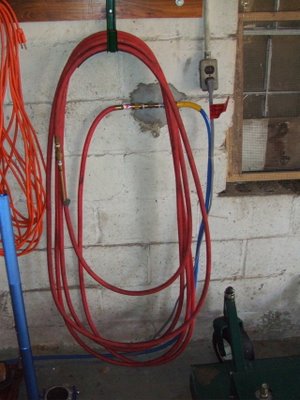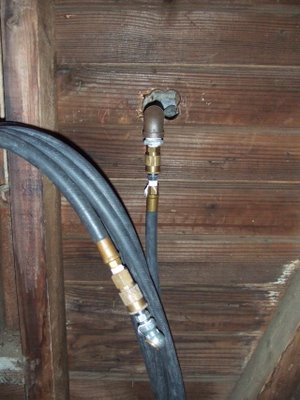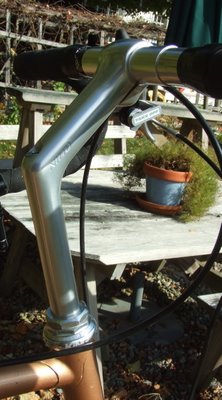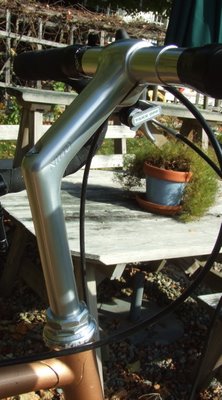Our house has a bifurcated garage -- a small wood-framed two-car garage next to a big cinderblock structure -- and a couple of years ago, I decided to install a source of compressed air. I have a small contractor's compressor which is plumbed into a pair of hoses, one in each garage:


The compressor is a small, oil-lubed compressor intended for nailguns. I use it to pump up tires and run an impact wrench. It will run any kind of an air tool except for a drill, air-chisel, or cut0ff tool.

What I like about it (as opposed to a "normal" large-capacity shop compressor) is that it does every automotive chore for which compressed air is required (blowing out fuel lines, running an impact wrench, and blowing pistons out of brake calipers). The things that it doesn't do, can be done using electric tools. Because it is small, it builds pressure quickly (like 20 seconds from empty), so when it's time to pump up the tires, you're up and running quickly. With a big shop compressor, you have to waste the time and energy of pumping up the whole tank before you can do anything.







